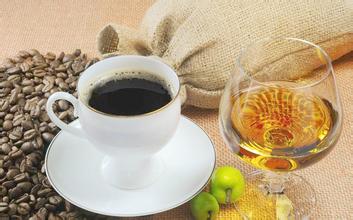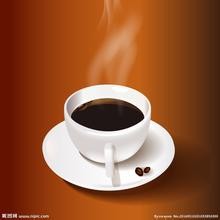Description of Jamaican Coffee Flavor of sour, bitter, Sweet and Alcohol Flavor introduction to the treatment of Grinding degree
The United States is a coffee-loving country, but the reporter did not find any "coffee beauty" in several major supermarket chains and Starbucks coffee shops in Houston. According to a waiter at a Starbucks coffee shop in downtown Houston, their coffee is mainly made from beans from Africa, Colombia or Indonesia. Blue Mountain Coffee is less on the market, and 90% of Blue Mountain Coffee is owned by the Japanese. At present, the "Blue Mountain style" coffee seen on the market does not contain a positive blue mountain coffee bean. One kind of "Jamaican mixed Blue Mountain" coffee is a mixture of 30% Blue Mountain Coffee and 70% of the best Jamaican Alpine Coffee. The above two kinds of coffee try to imitate the taste of Blue Mountain Coffee, but can not achieve the perfect state.
The reporter interviewed several customers near the coffee shop, some of whom had not even heard of Blue Mountain Coffee. Blue Mountain Coffee has been given a "cold reception" in the United States, which has something to do with American coffee drinking habits. Since the 1970s in the United States, seasoned coffee has gradually become everyone's favorite coffee. It is made by adding seasoning spices to the coffee beans or adding a seasoned coffee companion to the brewed coffee. There are hundreds of flavored coffees, and the most popular flavors in the United States are vanilla, hazelnut and almond.
The earliest coffee on the island of Jamaica came from Haiti in Latin America in 1728. By 1790, some coffee farmers among the refugees in exile from Haiti had settled in the Blue Mountains and brought coffee-growing technology here. In 1838, Jamaica abolished slavery and allowed liberated slaves to cultivate their own land. Free slaves moved to the mountains to grow coffee and exported it to England. Coffee has come to be known for its admiration by the British upper class. This kind of coffee is the Blue Mountain coffee that fascinates coffee lovers all over the world today.
Pure Jamaican Blue Mountain Coffee perfectly combines the unique sour, bitter, sweet, mellow and other flavors of coffee to form a strong and attractive elegant flavor, which is unmatched by other coffee. People who love Blue Mountain Coffee say: "it is a 'coffee beauty' that combines all the advantages of good coffee." Jim, general manager of Pitt, which is famous for its coffee and tea business in the United States, said of Blue Mountain Coffee: "it tastes fragrant, smooth and mellow, and it makes me feel as precious as a gem. It is precisely because the taste of Blue Mountain Coffee is moderate and perfect, so Blue Mountain Coffee is generally drunk in the form of black coffee. The unique flavor of Blue Mountain Coffee is related to the unique geographical location and climatic conditions of Blue Mountain. Blue Mountain is located in the coffee belt between 25 degrees north latitude and 25 degrees south latitude, with fertile new volcanic soil, fresh air, no pollution, rainy all the year round and great temperature difference between day and night. Most importantly, every afternoon, clouds cover the top of the mountain, which not only shades the coffee trees naturally, but also brings abundant water vapor, which makes the taste and aroma of Blue Mountain coffee outstanding.
Only coffee grown in the Blue Mountain area above 1800 meters above sea level can be called Blue Mountain Coffee. A coffee enthusiast whom the reporter knew in the United States was more "demanding". He insisted: "the coffee grown at an altitude of 2256 meters is Blue Mountain coffee." Coffee beans grown in the lower mountains of the island of Jamaica can only be named "Jamaican alpine coffee" because of their different qualities. In addition, the same coffee tree species, whether planted in Hawaii, Kenya, Papua New Guinea or anywhere else with a similar climate, cannot produce the flavor of blue mountain coffee beans.

Important Notice :
前街咖啡 FrontStreet Coffee has moved to new addredd:
FrontStreet Coffee Address: 315,Donghua East Road,GuangZhou
Tel:020 38364473
- Prev

Delicious Panamanian Cassa Coffee Flavor description, grindability treatment methods and taste introduction
Guatemala is a multi-party, independent democratic republic. The Constitution promulgated on 15 January 1986 provides for the separation of legislation (the Guatemalan Congress), law enforcement (the President and Vice-President) and the judiciary (the Supreme Court), belonging to the system of separation of powers. Congressional and presidential elections are held every four years, and all citizens over the age of 18 have the right to vote, while soldiers do not have the right to vote. Congress orders the most
- Next

Ethiopian Coffee Flavor description Grinding degree Taste characteristics Fine Coffee Manor introduction
This kind of coffee grows in areas ranging from 1400 to 2000 meters above sea level. After wet processing, this kind of coffee has a rich fragrance, a full fruit with moderate acidity and alkalinity, high quality and attractive spicy flavor. It is estimated that out of 49000 hectares of cultivated area, the average annual production of this coffee is 29000 tons (equivalent to 480000 bags of 60 kg coffee). Dejima (Djimma)
Related
- Detailed explanation of Jadeite planting Land in Panamanian Jadeite Manor introduction to the grading system of Jadeite competitive bidding, Red bid, Green bid and Rose Summer
- Story of Coffee planting in Brenka region of Costa Rica Stonehenge Manor anaerobic heavy honey treatment of flavor mouth
- What's on the barrel of Blue Mountain Coffee beans?
- Can American coffee also pull flowers? How to use hot American style to pull out a good-looking pattern?
- Can you make a cold extract with coffee beans? What is the right proportion for cold-extracted coffee formula?
- Indonesian PWN Gold Mandrine Coffee Origin Features Flavor How to Chong? Mandolin coffee is American.
- A brief introduction to the flavor characteristics of Brazilian yellow bourbon coffee beans
- What is the effect of different water quality on the flavor of cold-extracted coffee? What kind of water is best for brewing coffee?
- Why do you think of Rose Summer whenever you mention Panamanian coffee?
- Introduction to the characteristics of authentic blue mountain coffee bean producing areas? What is the CIB Coffee Authority in Jamaica?

